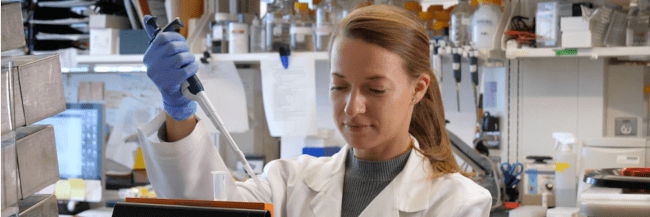
The new study out of MIT suggests that cellular enlargement drives a decline in function of stem cells. The researchers found that blood stem cells, which are among the smallest cells in the body, lose their ability to perform their normal function — replenishing the body’s blood cells — as they grow larger. However, when the mice were treated with rapamycin the blood stem cells were maintained at their usual size and, they behaved normally.
When the researchers treated mice with rapamycin, beginning at a young age, they were able to prevent blood stem cells from enlarging as the mice got older. Blood stem cells from those mice remained small and were able to build blood cells like young stem cells even in mice 3 years of age — an old age for a mouse.
From the study:
Last, we show that murine and human hematopoietic stem cells enlarge during aging. Preventing this age-dependent enlargement improves HSC function. We conclude that small cell size is important for stem cell function in vivo and propose that stem cell enlargement contributes to their functional decline during aging.
Adult stem cells are critical for the maintenance of many tissues in our body. For example, hematopoietic stem cells (HSCs) build the blood system throughout life. Their magnificent ability to proliferate and differentiate into the blood lineages is illustrated by the observation that a single HSC can repopulate the hematopoietic compartment of a lethally irradiated mouse when coinjected with radioprotective bone marrow (BM)
In summary, we have examined six different experimentally induced or physiological conditions, under which hematopoietic stem cell exhaustion occurs: irradiation-induced DNA damage, Cdk4/6 inhibition, hyperactivation of mTOR, high division rate during transplantation, repeated pregnancy, and naturally large hematopoietic stem cells. We observe that hematopoietic stem cells enlarge under all these conditions. In all experimental settings, in which this could be investigated, preventing HSC enlargement with rapamycin preserved HSC fitness.
Our findings may have implications for rejuvenation therapies to improve stem cell function during aging. Rapamycin treatment has been reported to lengthen the life span of mice and improves the function of aged HSCs (67, 68). Our data indicate that rapamycin prevents the enlargement of HSCs and thereby protects them and potentially other stem cells from aging. However, rapamycin does not restore HSC function once they are large.
Rapamycin, a drug that can inhibit cell growth, is now used to treat some cancers and to prevent organ transplant rejection, and has raised interest for its ability to extend lifespan in mice and other organisms. It may be useful in slowing down the enlargement of stem cells and therefore could have beneficial effects in humans, Lengefeld says.
Read the Full story on the MIT website: For stem cells, bigger doesn’t mean better
Full Research paper here.